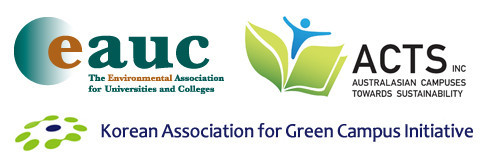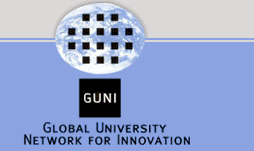During the past several months, the following tertiary education focused orga...
During the past several months, the following tertiary education focused organisations have been collecting input regarding UNCSD and the position of their members towards Rio+20 outcomes:
Collectively, these organisations engage more than one-thousand tertiary institutions across the globe.
Each organisation has gathered input through consultation and developed positions regarding the input for the UNCSD Compilation Document, the Zero Draft Document and the Outcomes Document. The statements from each organisation are provided below. Although there are differences representing the different viewpoints and needs there are a number of common, international themes that are embodied in these statements.
All organisations noted that it is critical for the role of tertiary education in advancing sustainable development to be explicitly recognised in all documents related to UNCSD 2012. The role of tertiary education in realising sustainable development and the eradication of poverty includes its functions in education and training, knowledge production and dissemination (i.e. research), community engagement, and as serving as exemplars for good practices in sustainable development.
In addition, the organisations called for the UNSCD 2012 to insist on support for tertiary education through the provision of appropriate resources and through access to stakeholders so they can assist business, governments and society to advance sustainable development.
Although the organisations have not reached consensus on how to best create long term institutionalisation of sustainable development within the United Nations structure, they do agree that there is a need to create an organisation with United Nations support that will last long term and provide a focus for education for sustainable development. Within this structure there needs to be a body for addressing, assessing and encouraging continued education for sustainable development efforts.
As is noted in the document, the organisations are prepared to work with each other, to encourage their members to work with one another as well as institutions elsewhere, and to work with the appropriate United Nations agencies to assist tertiary education in advancing sustainable development.
Find the full document here
- The Association for the Advancement of Sustainability in Higher Education (AASHE) (USA/Canada)
- Australasian Campuses Towards Sustainability (ACTS) (Australia/New Zealand)
- Global University Network for Innovation (GUNi) (Spain/international)
- Korean Association for Green Campus Initiative (KAGCI) (South Korea)
- Environmental Association for Universities and Colleges (EAUC) (United Kingdom)
Collectively, these organisations engage more than one-thousand tertiary institutions across the globe.
Each organisation has gathered input through consultation and developed positions regarding the input for the UNCSD Compilation Document, the Zero Draft Document and the Outcomes Document. The statements from each organisation are provided below. Although there are differences representing the different viewpoints and needs there are a number of common, international themes that are embodied in these statements.
All organisations noted that it is critical for the role of tertiary education in advancing sustainable development to be explicitly recognised in all documents related to UNCSD 2012. The role of tertiary education in realising sustainable development and the eradication of poverty includes its functions in education and training, knowledge production and dissemination (i.e. research), community engagement, and as serving as exemplars for good practices in sustainable development.
In addition, the organisations called for the UNSCD 2012 to insist on support for tertiary education through the provision of appropriate resources and through access to stakeholders so they can assist business, governments and society to advance sustainable development.
Although the organisations have not reached consensus on how to best create long term institutionalisation of sustainable development within the United Nations structure, they do agree that there is a need to create an organisation with United Nations support that will last long term and provide a focus for education for sustainable development. Within this structure there needs to be a body for addressing, assessing and encouraging continued education for sustainable development efforts.
As is noted in the document, the organisations are prepared to work with each other, to encourage their members to work with one another as well as institutions elsewhere, and to work with the appropriate United Nations agencies to assist tertiary education in advancing sustainable development.
Find the full document here













